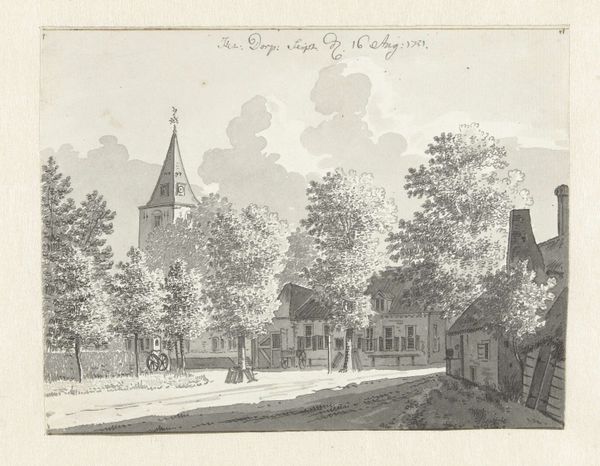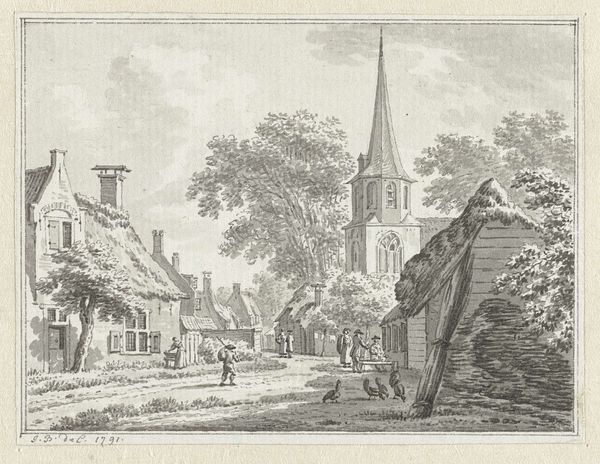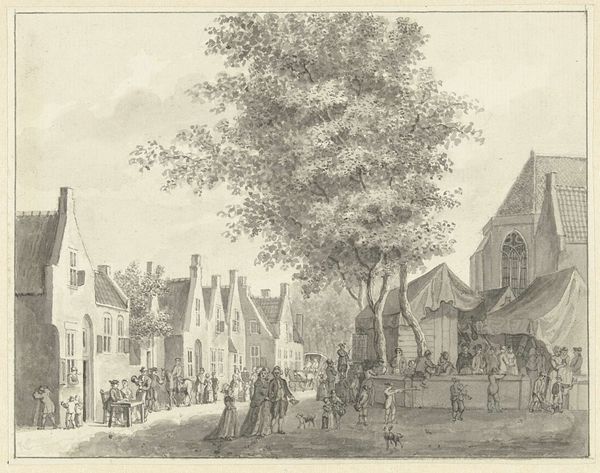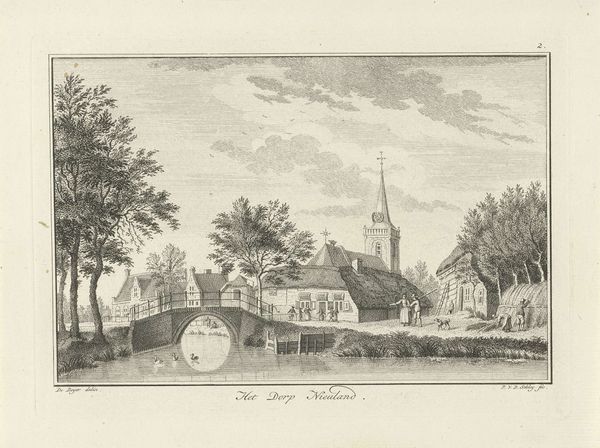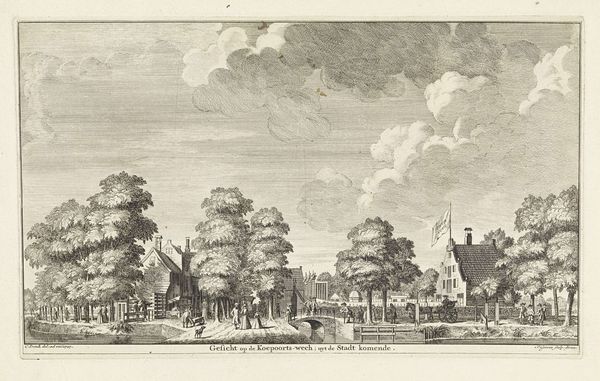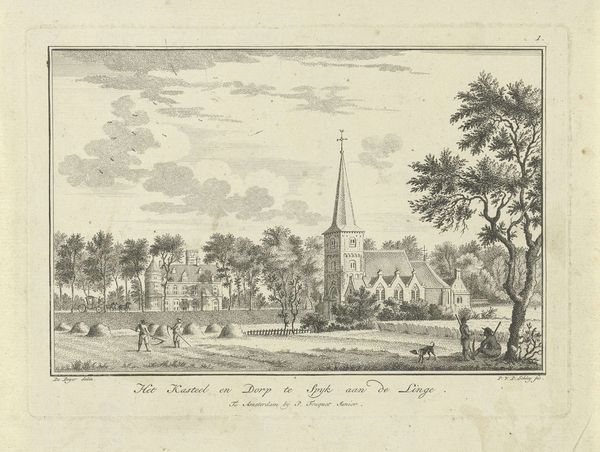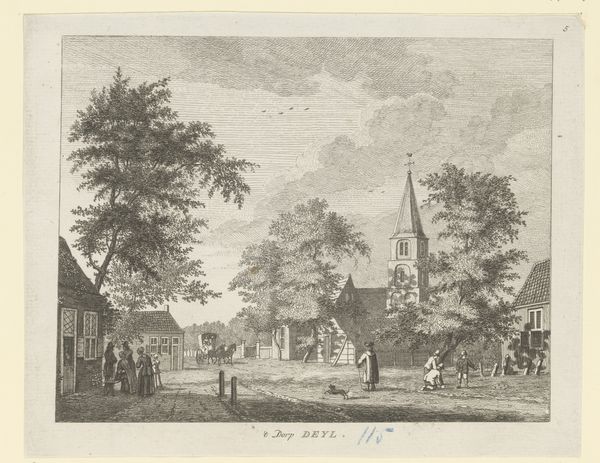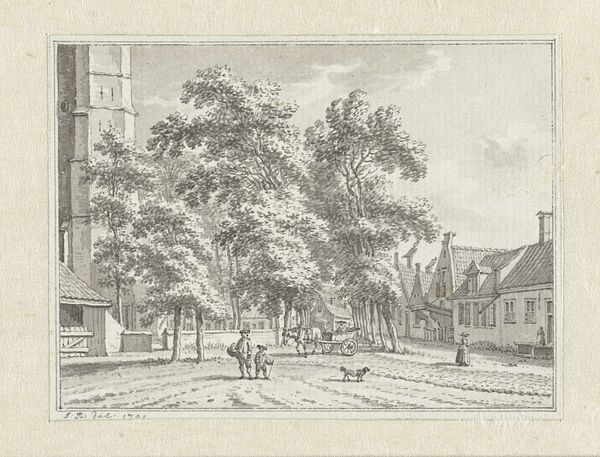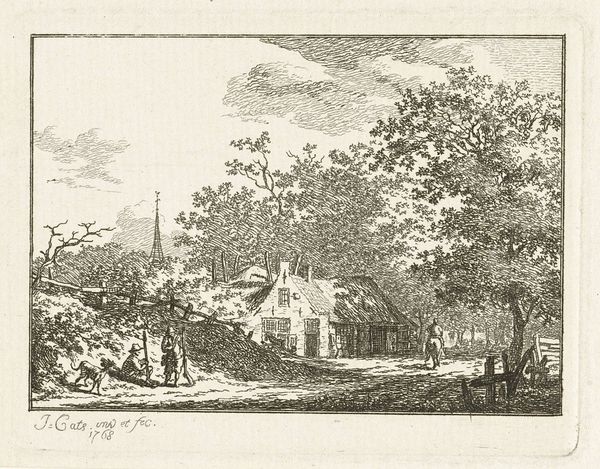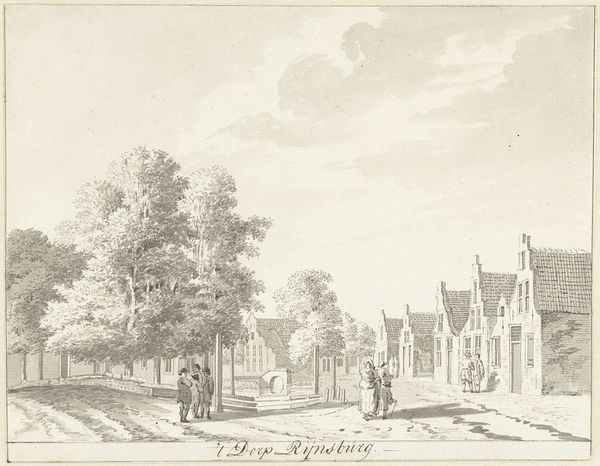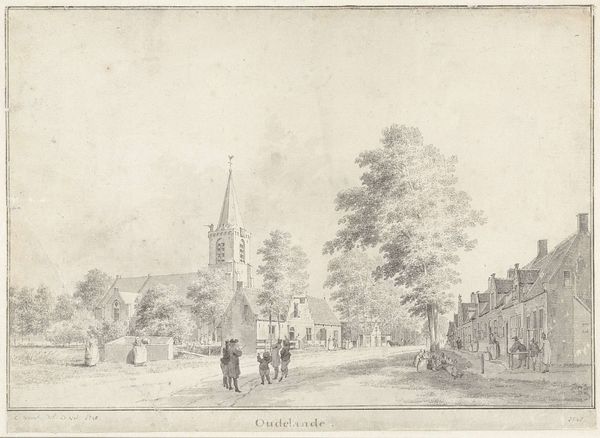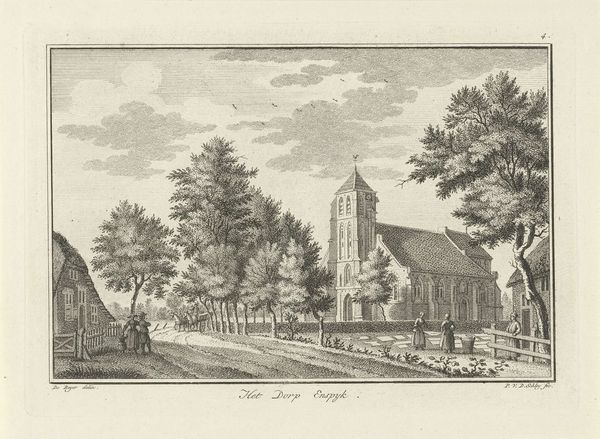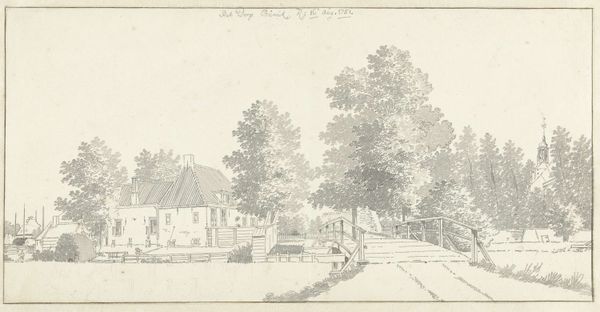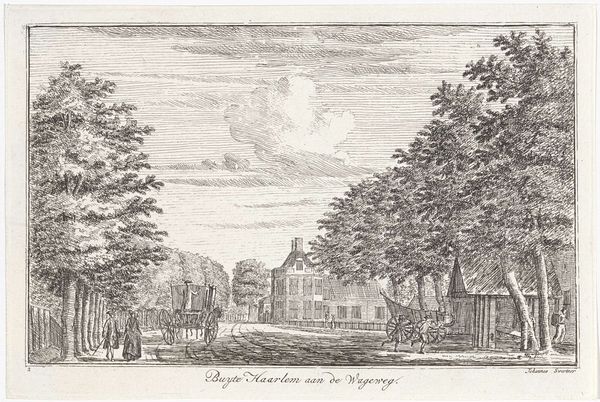
drawing, ink, pen
#
drawing
#
dutch-golden-age
#
landscape
#
ink
#
pen
#
cityscape
#
genre-painting
Dimensions: height 128 mm, width 207 mm
Copyright: Rijks Museum: Open Domain
Jan de Beijer made this pen drawing of Doorn village in 1750. De Beijer was a prolific draughtsman, celebrated for his detailed topographical representations of cities and villages in the Netherlands. During the 18th century, the Dutch Republic was undergoing significant social and economic changes, moving away from its Golden Age and grappling with increasing internal divisions. Drawings such as these provided visual records of the changing Dutch landscape and can offer insights into the daily life and social structures of the time. The artist’s choice to focus on the architecture and layout of the village, rather than its inhabitants, invites reflection on how space and place shape identity and community. Consider how the church spire anchors the town. This steeple emphasizes the influence of religion on social and cultural life in the 1700s.
Comments
No comments
Be the first to comment and join the conversation on the ultimate creative platform.
